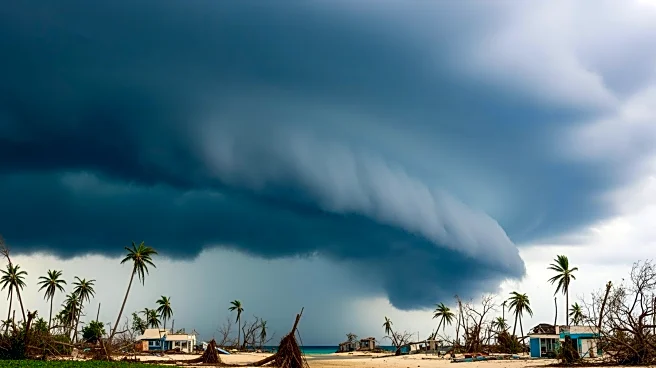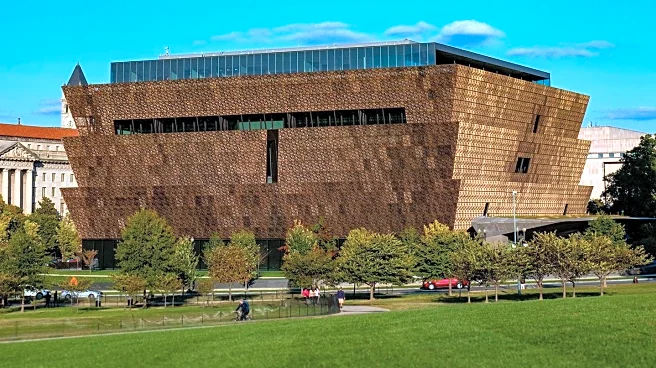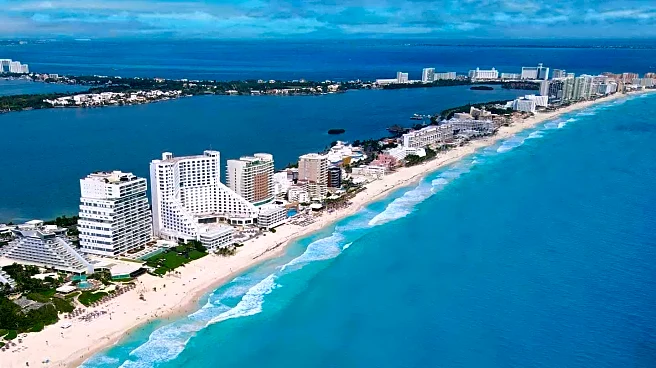What's Happening?
Hurricane Melissa has caused significant devastation in Jamaica, particularly affecting the tourist center of Montego Bay and the western part of the country. Satellite data analyzed by the Earth Observatory
of Singapore indicates that at least 40% of buildings and roads in the worst-hit areas have been severely damaged. The storm, which made landfall as a Category 5 hurricane, is the strongest to hit Jamaica in over 170 years, with winds reaching 185 miles per hour. The damage is extensive, with entire communities marooned and significant agricultural losses, particularly in staple crops like yams and tomatoes. The economic impact is estimated at $8 billion, with widespread flooding contributing to the losses.
Why It's Important?
The destruction caused by Hurricane Melissa has significant implications for Jamaica's economy and infrastructure. The estimated $8 billion in damages represents a substantial portion of the country's GDP, highlighting the economic vulnerability of island nations to natural disasters. The agricultural sector, a critical component of Jamaica's economy, faces severe setbacks due to crop destruction, which could lead to food shortages and increased prices. The damage to infrastructure, including power outages affecting 72% of customers, further complicates recovery efforts. The storm's impact underscores the need for robust disaster preparedness and response strategies in the Caribbean region.
What's Next?
Recovery efforts are underway, with international aid beginning to flow into Jamaica. The U.S. has deployed specialized search-and-rescue teams to assist with recovery operations. Humanitarian flights have resumed at Kingston Airport, while Montego Bay Airport remains closed. The focus will be on assessing structural stability, restoring essential services, and addressing immediate humanitarian needs. As the storm moves away from the Caribbean, attention will shift to long-term rebuilding and economic recovery, with potential international support playing a crucial role in these efforts.
Beyond the Headlines
The devastation caused by Hurricane Melissa highlights the broader challenges of climate resilience and disaster management in the Caribbean. The frequency and intensity of such storms are increasing, raising questions about the adequacy of current infrastructure and emergency response systems. The situation also brings attention to the socio-economic disparities that can exacerbate the impact of natural disasters, as vulnerable communities often bear the brunt of the damage. This event may prompt discussions on sustainable development and climate adaptation strategies to better protect island nations in the future.









